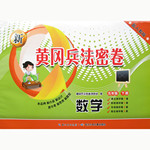题目内容
15.Are billionaires good with exams as well as their money?Or are they more likely to have escaped school at the first opportunity and worked their way up to make their fortunes?A study of the educational background of some of the world's wealthiest people shows that they are much more likely to have gone to university,and they are more likely to have a postgraduate degree(硕士或博士研究生学位) than no degree at all.
It doesn't give much support for the image of self-taught entrepreneurs (企业家),who rely on their own wisdom rather than higher education.
The study,by insurance company GoCompare,examined the educational background of people appearing in the top 100 billionaire lists by Forbes magazine over the past 20 years.
It shows that 76 percent of these billionaires have a degree.Forty-seven percent of them have a bachelor's (学士) degree,23 percent a master's (文/理科硕士) degree and 6 percent a doctorate(博士学位).The most popular subjects were the ones related to economics and engineering.There were many more studying sciences than arts.
The school attended by the global super rich are also much more likely to be world-class universities,rather than local ones.Harvard University is the single most likely name to be found on the resume(履历) of a billionaire,though one of the most famous names on the rich list,Bill Gates,dropped out of Harvard before finishing.
Stanford University in California and the Massachusetts Institute of Technology have become the launchpads for a rising number of tech billionaires.Google's co-founders Larry Page and Sergey Brin were both postgraduates at Stanford.Borthers Charles and David Koch,who are among the world's biggest oil tycoons,both got their bachelor's and master's degrees from MIT.
Among U.K.universities,the London School of Economics and Political Science and the University of Cambridge have the most multi-billionaires on the Forbes list,while Oxford has produced Rupert Murdoch.
28.The study has found all of the following EXCEPTD.
A.most billionaires are not self-taught geniuses
B.billionaires are much more likely to have received higher education
C.nearly half of those on Forbes'top 100 billionaire lists have a bachelor's degree
D.there are more billionaires without degree at all than those with a master's degree
29.Of the following subjects,what is the most likely to have been a college major of a billionaire?A
A.Computer science.
B.Art history.
C.English literature.
D.Law.
30.What does the underlined word"launchpads"in Paragraph 7 mean?B
A.Favorite places of famous people.
B.Effective starting points for a career.
C.Places on the Internet that help you find information.
D.Places where rockets and other spacecraft are sent into space.
31.Which of the following statements is TRUE according to the article?D
A.The study was carried out by Forbes magazine.
B.A high percentage of the world's richest people have a doctorate.
C.Rupert Murdoch went to the London School of Economics and Political Science.
D.Harvard University has produced more billionaires on the Forbes list than any other university.
分析 本文属于说明文阅读,作者通过这篇文章主要向我们描述了研究发现许多的亿万富翁有学士学位,学历是很重要的
解答 28.D.细节理解题.根据文章and they are more likely to have a postgraduate degree(硕士或博士研究生学位) than no degree at all可知研究发现许多的亿万富翁有学士学位;故选D.
29.A.推理判断题.根据文章The most popular subjects were the ones related to economics and engineering.There were many more studying sciences than arts可知计算机科学是最有可能成为亿万富翁的大学专业;故选A.
30.B.词义猜测题.根据文章Stanford University in California and the Massachusetts Institute of Technology have become the launchpads for a rising number of tech billionaires可知加利福尼亚的斯坦福大学和麻省理工学院已经成为一个崛起的高科技亿万富翁数量的发射台;意为一个有效的出发点;故选B.
31.D.细节理解题.根据文章Harvard University is the single most likely name to be found on the resume(履历) of a billionaire,though one of the most famous names on the rich list,Bill Gates,dropped out of Harvard before finishing可知哈佛大学制作的福布斯名单的亿万富翁比其他任何大学都多;故选D.
点评 考察学生的细节理解和推理判断能力,做细节理解题时一定要找到文章中的原句,和题干进行比较,再做出正确的选择.在做推理判断题不要以个人的主观想象代替文章的事实,要根据文章事实进行合乎逻辑的推理判断.

 单元全能练考卷系列答案
单元全能练考卷系列答案 新黄冈兵法密卷系列答案
新黄冈兵法密卷系列答案Last summer I was a volunteer (志愿者) at a shelter for the homeless,a place for homeless people to sleep at night.I wasn't working that summer and was(21)Donly two classes in summer school,so I had some(22)Btime.
Three nights a week,I(23)Ain the kitchen of the shelter along with four other volunteers.We planned and(24)Cfor 45 people hot meals(25)Avegetables,chicken,fish and fruit.The homeless people(26)Bthis good food because many of them usually didn't eat well.
I(27)Dthis volunteer work,making(28)Cwith the four volunteers in the kitchen.One was a very nice elderly housewife,one a movie actor,another a young teacher,and the other a college student,(29)Bme.
I talked to a lot of the homeless peop le at the shelter.Their life stories(30)Bme with sympathy (同情).Some of them had(31)Dwith alcohol (酒) or drugs while others only had bad(32)A.One woman worked for almost 30 years for a small company,and(33)Cshe lost her job.She looked for a(34)Djob,but couldn't find one,for she was too(35)A.She could do nothing but sell her furniture-sofas,chairs,and tables(36)Cshe could pay for her food.The woman(37)Aon job hunting,but she(38)Bcouldn't find one.She had no money for her(39)Dand had to sleep in her car.Then she had to sell her car.Alone,(40)A,and homeless,she finally came to the shelter.
| 21.A.studying | B.planning | C.holding | D.taking |
| 22.A.full | B.free | C.extra | D.long |
| 23.A.helped | B.waited | C.appeared | D.washed |
| 24.A.ordered | B.bought | C.cooked | D.finished |
| 25.A.with | B.from | C.by | D.in |
| 26.A.demanded | B.needed | C.collected | D.requested |
| 27.A.wanted | B.had | C.owned | D.enjoyed |
| 28.A.decisions | B.wishes | C.friends | D.changes |
| 29.A.as | B.like | C.except | D.besides |
| 30.A.struck | B.filled | C.seized | D.provided |
| 31.A.habits | B.worries | C.difficulties | D.problems |
| 32.A.luck | B.pain | C.experience | D.loss |
| 33.A.so | B.again | C.then | D.thus |
| 34.A.good | B.fresh | C.skilled | D.new |
| 35.A.old | B.poor | C.sick | D.dull |
| 36.A.if | B.because | C.so that | D.in case |
| 37.A.went | B.moved | C.came | D.worked |
| 38.A.also | B.still | C.almost | D.even |
| 39.A.block | B.cottage | C.building | D.flat |
| 40.A.afraid | B.shy | C.shocked | D.mad |
| A. | occupied | B. | occupying | C. | taken up | D. | absorbing |
| A. | should meet | B. | would meet | C. | met | D. | were to meet |